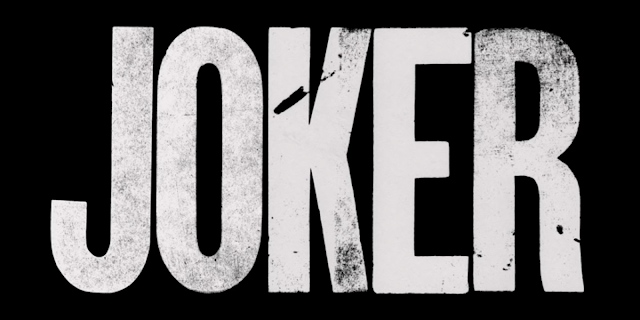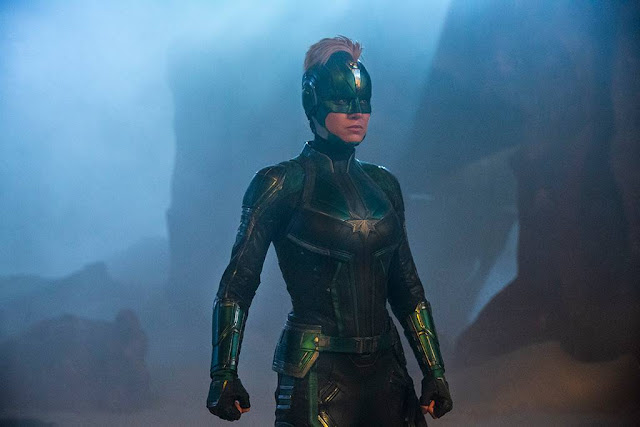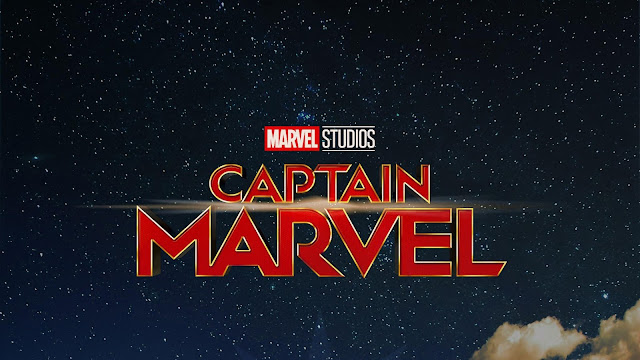With the end of an era for comic book fantasy adventures
from Marvel’s Cinematic Universe, we are left to pick up the pieces and find
the next big thing to drive the genre of stories and films forward in bringing
comic book characters/stories to life.
This leads us to DC films along with Warner Brothers looking to finally
define their new direction after the moderate success of Shazam! with
this grounded and definitive take on the origins and transformation of one of
the most iconic villains to grace fiction, Joker directed by Todd
Phillips (Old School, The Hangover Trilogy) and wrote this story with
Scott Silver, not drawing on any of the comic books or adaptations for the
character outside of a few inspired elements like “The Killing Joke”. It mainly draws many inspirations and
somewhat odd similarity to 2 iconic Martin Scorsese films such as Taxi
Driver and The King Of Comedy but with the focus on Joker as the
lead protagonist to explore and develop from start to finish. Is it this purported masterpiece of a film or
is it really a compellingly dark yet uneven character study that is only
salvaged by the strengths of its parts that hold it together? Let’s dive right into the tragic tale of
Arthur Fleck and explore where he is at, in his story.
We follow a part time clown worker/ex-Arkham patient named
Arthur Fleck (Joaquin Phoenix), discussing his shabby, painful days of working
and caring for his mother Penny Fleck (Frances Conroy), who was a former
secretary of Thomas Wayne (Bret Cullen).
We learn through his daily life routine that he has a neurological
condition that causes him to laugh when he feels nervous or stressed, while
barely making enough to get by if kids weren’t roughing him up or getting
docked for a sign stolen from him. Arthur
cares for his ill mother, while aspiring to be a stand-up comedian like his
idol, Murray Franklin (Robert De Niro), a late-night talk show host admired by
many in Gotham. That isn’t helped by the
rundown, grimy setting of Gotham City, with people being frustrated with the
rich society that refuses to help make their lives better and Thomas Wayne
vying to run as Mayor of Gotham City as a way to improve the city for the
better. However, it gets even worse for
Arthur Fleck with his job and his life prospects in general.
After being given a gun by a colleague and accidentally dropping
it in the kids’ hospital ward, he gets fired and starts to laugh hysterically
of his predicament, when a group of rowdy and rude wall street men harass
him. It gets to the point where Fleck
kills them and he realizes in a quiet moment alone, just how powerful and
liberating it was to take the life of those that have stepped on and ignored
him entirely. It also seems to bring out
his confidence to express his love for Sophie Dumond (Zazie Beetz) and becoming
an item to him, as he sees how his violent action has brought about the courage
in Gotham City to rise against the wealthy with Thomas Wayne adding fuel to the
flame with his dismissal of this movement.
Through revelations, distorted truths, and ultimately an admission from
within, this is the seed of change that would transform the introverted Arthur
Fleck into the iconic Clown prince of crime, The Joker.
This is not your traditional comic book film at all but more
of a solo character study drama that follows from start to finish, Arthur’s
transformation from a meek, unstable man hanging on by a thread to a confident,
brazen literal incarnation of chaos and anger of a completely lost soul. His character arc is the driving force that
moves with such powerful force, that it keeps the film’s script holding
together, despite the inherent problems within the script’s storyline and on
the nose, heavy handed dialogue dominating the few moments of subtle, impactful
nuance that does exist here and there.
This is coupled with the extraordinary, heavy instrumental score and
committed lead performance that makes this character of Arthur Fleck a
compelling return for the introverted character and transformation arc that
dominated much of 1970’s cinema. It is
for those reasons that elevate the film as well as bring to light the
importance of mental illness in lieu of character development and to the
overall point the film makes regarding the character becoming the Joker. But the real strength of this film, exudes
the same intention and creative drive as Christopher Nolan’s Batman Begins,
to reinvent the character and find a way to ground him while staying true to
the core elements of the character and they pull it off with the personal
character story they have at work here.
Where the issues reside with the story overall, is within
the script and the story created around this character study as well as the
dialogue writing at work here. It is
difficult to avoid comparisons to Martin Scorsese and his style of filmmaking,
particularly its main inspirations being Taxi Driver and The King Of
Comedy with elements of different 1970’s films that can be discerned,
notably Sidney Lumet’s Network as a clear example. It does take certain plot beats and character
driven moments of those films and pretty much injects different components of
the Joker and Gotham City into it (while still staying true to the core
essences of the character and world), it does so to a less impactful or
remarkable effect than its source materials.
There are also times, through the dialogue that the film tends to be
heavy handed or untrusting of the audience’s intelligence to spell out the
themes and emotions of the character at times.
This doesn’t take away from the
moments that do work and despite how thin and ultimately shallow the story is,
the personal journey of Arthur Fleck into the Joker is what keeps the entire
film afloat.
The main driving force of this film and why it works
effectively well is from the brilliantly, transformative lead role of Arthur
Fleck played by Joaquin Phoenix. His
dedication to the acting craft as well as his own research into making his
performance authentic is nothing short of stunning to see it play so well into
making a character, we can empathize with but also despise for what he truly
becomes by the climax. As the meek yet
passive Arthur Fleck, we truly feel for his journey to find his place in the
grimy, uncaring Gotham, while dealing with his uncontrollable mental illness of
laughing caused by the physical abuse to the brain. When he finally transforms into the Joker, he
completely owns his unique take on the character and brings a new dimension to
the iconic villain that will no doubt inform the direction of future
incarnations down the line.
Another flawed but commendable aspect of the film is the
supporting cast as a whole, ranging from minimal and non-existent to
surprisingly effective for the short time present in the film. The most notable one that utilizes his role
completely to the fullest is Robert De Niro as the talk show host Murray Franklin,
channeling the swagger and dismissive attitude of the characters he has played,
specifically from The King Of Comedy and stands out in the 2-3 major
scenes he has throughout the film. Zasie
Beetz as Sophia doesn’t really get much to do in her small screen time as the
love interest but she does handle the big twist regarding her connection to
Arthur very well. Even Brian Tyree Henry
makes the most of his one scene along with the quick appearance of notable
characters of Gotham but really serving to develop Arthur transformation and
acceptance of his chaotic self. Overall,
the cast are relatively fine in their bit roles but Phoenix is the one who
shines and will get most of the attention for his exceptionally powerful take
on this character.
Let’s get right into the look of
the film, starting with the art direction and cinematography especially in
designing the cityscape and environments featured throughout the film. It is easy to see the rundown, dilapidated
apartment complexes and worn nature of Gotham from hospitals to trains are
inspired by the 1970’s grimy aesthetics of New York at that time. It works effectively in putting us in a city
that could lay the foundation for the creation of Batman and Joker, compliments
of the talents with production designer Mark Friedberg, set decoration by Kris
Moran, and art director Laura Ballinger with their teams to craft this look of
Gotham based around the rundown areas of both New Jersey and Sunnyside/Bronx of
New York City. The same can go for the
cinematography of the film by Lawrence Sher (shot many of Phillips films
including The Hangover trilogy and War Dogs), who absolute draws
us into the headspace of Arthur in a very intimate, creepy way that allows us
to experience his perspective of Gotham with capturing the aesthetics of crime
dramas of the 1970’s period. The look of
this film is truly stunning to watch unfold and captures a balance of the
hyper-realism that defines the atmosphere of Gotham City within the streets of
New York City, from everyone that worked on the artistic departments for this
film.
This is a dedicated section to the
costume and makeup artists for this film, especially in crafting a new look for
the iconic character as well. The
costume design by Mark Bridges really brings back the workman, poverty-stricken
qualities of the 70’s perfectly with the look of each citizen of Gotham contrasting
with the outlandish clown getups Fleck wears throughout as well as the classy
affluent looks of the wealthy and famous characters in the cast. The makeup team have also made each character
look distinctive and fitting of that time period and setting but they truly out
do themselves with a different yet respectful look for the final Joker look
that standouts out and maintains the classic look of the character as well as a
homage to the Scorsese films that it was inspired from. It was worth noting the artistry put into
making these characters come to life and be different from other
interpretations and incarnations that have come before this film.
Lastly, the editing along with
powerful sound design of the film’s effects and soundscape in tandem with the
exceptional score that truly feels interconnected to the overall identity of
this film. The sound design team do an
exceptional job with instilling a heavy and booming punch to the moments of
violence that occur in the last act of the film as well as adding a sense of
tension in the quieter moments accentuated by the uncontrollable laughter from
Fleck, made impactful by the sharp and concise editing from Jeff Groth,
utilizing the 2 hour runtime without feeling like wasted time. The final compliment and greatest strength of
the film is the composer Hildur Guðnadóttir, who provides a very operatic yet naturally
haunting acoustic score with only a few pieces featuring synths appropriately
but what she has crafted allows for us to really feel the dark and creepy
mindscape of Arthur with the visuals (it helps to have also scored the
fantastic HBO miniseries, Chernobyl as well). The crew did an exceptional job in elevating
and providing the punch the film needed to resonate effectively, where the film
does fall short in and that is a credit to the fantastic teams of filmmakers at
work here.
This is quite a film to come back
into critical writing for, but it is a credit mainly to how much of a different
yet refreshingly grounded take this is for such a remarkably timely yet fan
favorite villain of the Batman/Gotham universe itself. Joker succeeds where it matters, in
crafting a grounded character driven tale of how someone like him can exist
within our own world, the same way Christopher Nolan redefined Batman for
modern audiences but not quite as gracefully as that film. Mainly from the issues that reside from the
heavy handed, simplistic dialogue sprouting the themes and emotions to us as
well as the shaky yet violent climax, despite the amazing lead performance for
that scene alone elevating past the flaws of the narrative plot in the
script. However, what keeps the film
afloat and makes this work is the mesmerizing performance by Joaquin Phoenix in
crafting a Joker that will truly define the way this character morphs with
future cinematic versions going forward for DC films.
Score: *** out of *****
Joker is a timely yet effective
character driven drama of a man pushed to his limits and committing to what he
was always meant to be, a Joker. Taking
inspiration from the finest of this type of narrative singular character focused
filmmaking, be it from Scorsese films or even other films such as Network and
even Falling Down, it follows the structure of those films to the
letter, but with the emphasis on Joker and Gotham City itself, along with the
key players that live there as well as changed by the Joker in this particular
incarnation. The exceptional and
fantastic art direction, aesthetically distinctive and 1970's period influence with the costume/makeup, and wonderfully creepy score elevate the film and give it the
impact that makes it work in tandem with the memorable performance from Phoenix
himself. Where the film does falter is
it somewhat derivative, weak script writing at work with the logic of the plot being
fast and loose by the climax, only scratching the surface of the important
themes and mental health issues but only in lieu of the character journey at
work here, and not having a stronger story to take full advantage of this Joker
until the last act. This is mainly worth
seeing for what will be one of the many remarkable lead performances of 2019
that drives and defines this film’s legacy for years to come.





























